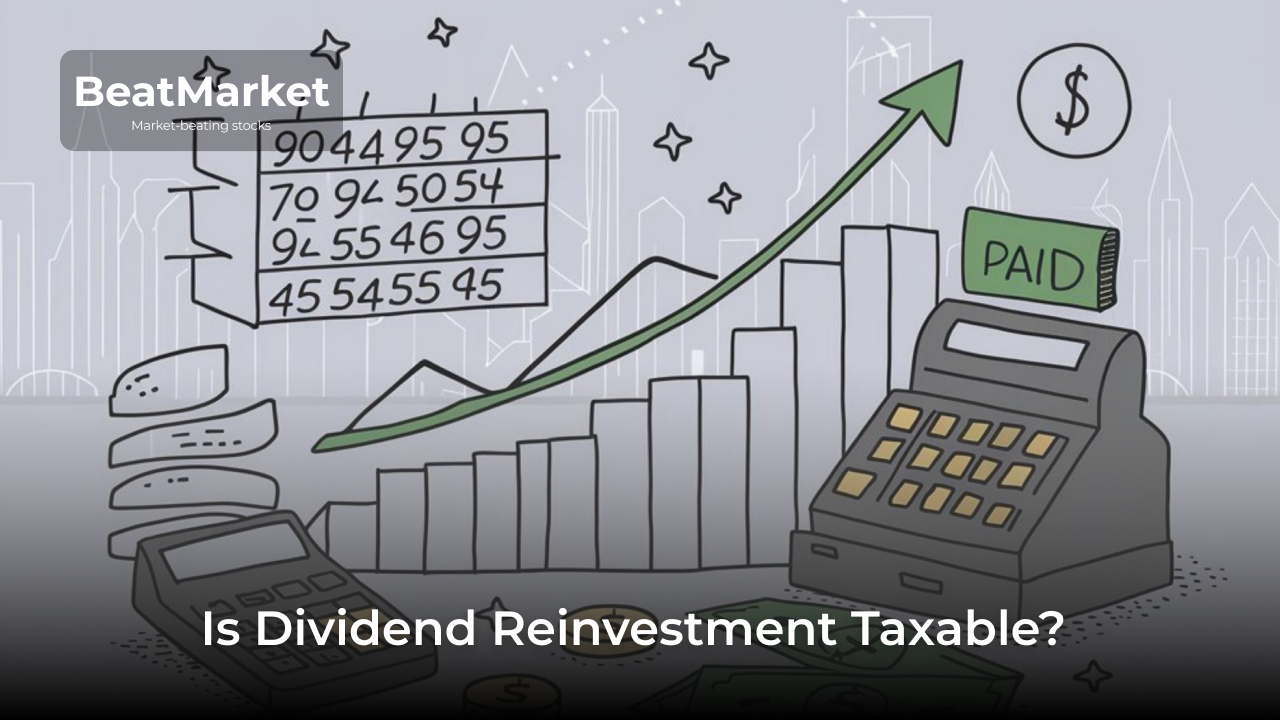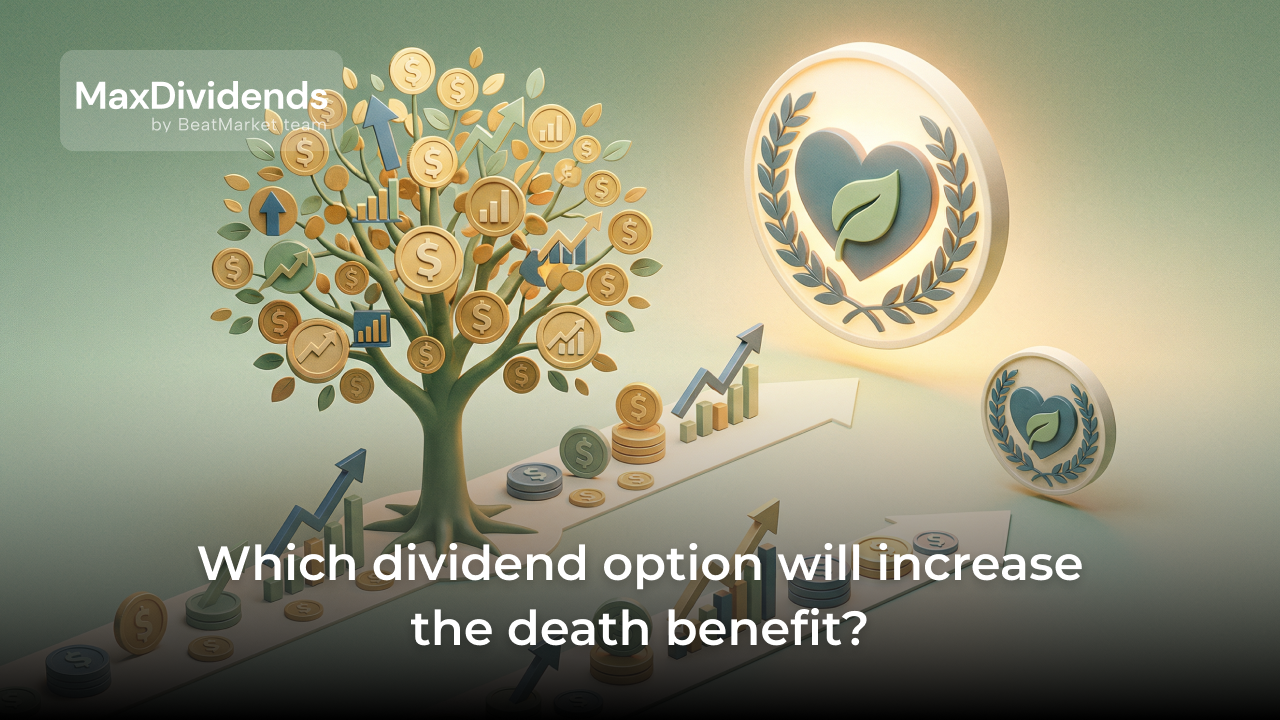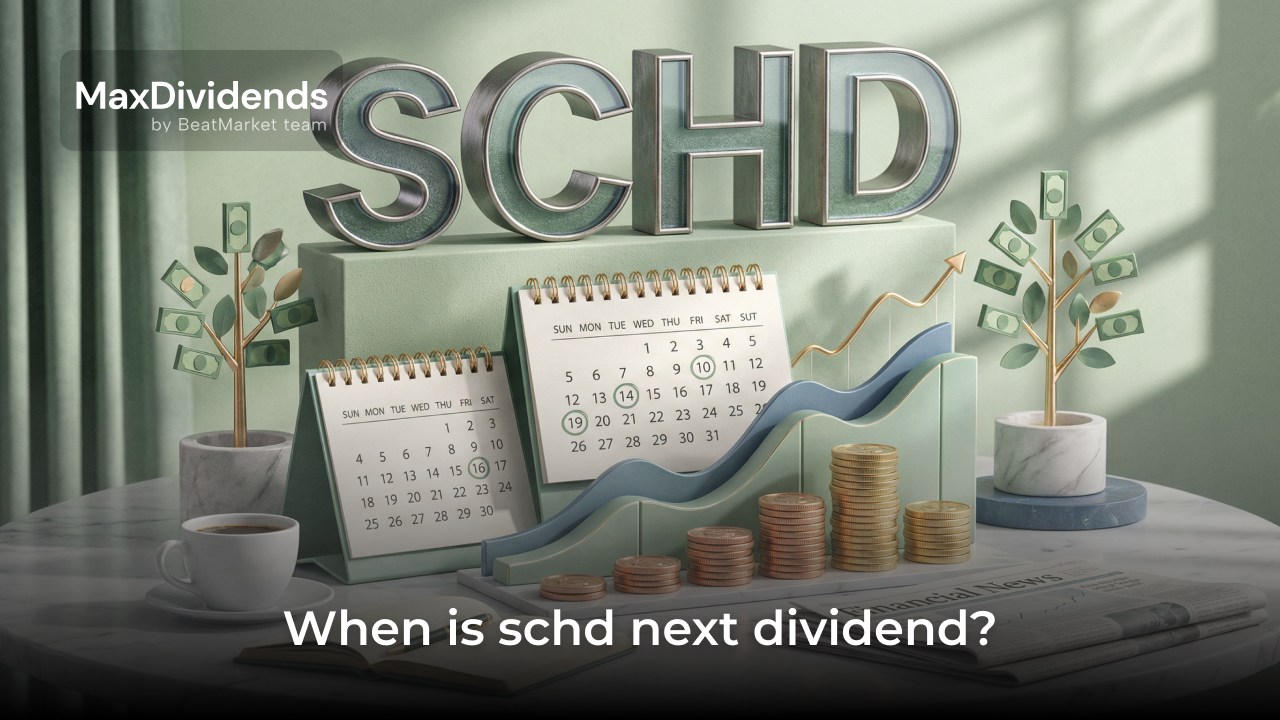A common question among beginner investors: “Is dividend reinvestment taxable”. The answer is yes. Regardless of the purpose for which the received funds were used, they represent income.
The tax rate that will be applied depends on the status of the distributions. For tax purposes, there are qualified dividends and ordinary dividends. Beginner investors may find it helpful to consult with a financial advisor for tax planning.
Dividend payments represent the distribution of a portion of a company’s earnings among its shareholders. Many investors value dividend stocks for the opportunity to live on passive income.
Other investors prefer to reinvest. They use the received funds to purchase additional shares. This decision offers several advantages, including savings on brokerage fees.
Key Takeaways
- Dividends are income subject to taxation. Qualified dividends are subject to lower tax rates than ordinary dividends.
- Whether cash dividends are recognized as qualified or not depends on whether they meet certain conditions.
- Reinvesting does not eliminate the need to pay taxes. However, there are ways to defer or completely avoid the tax payment.
Table of Contents
What Is Dividend Reinvestment?
The term “reinvest dividends” means that the funds are directed toward purchasing shares. Instead of withdrawing money from the account, the investor uses it to increase the number of securities.
This provides the following advantages:
- The portfolio value increases due to the new shares.
- There is a compounding effect. Shares in companies and ETFs purchased with quarterly dividend money appreciate over time. They also generate regular payouts, increasing the investor’s passive income.
- Dollar-cost averaging occurs. During bear market periods, the investor buys more shares than during a bull rally. As a result, the average cost of the position is lower.
- There is no need to pay brokerage commissions.
The answer to the question “Does dividend reinvestment get taxed” is yes. Purchasing additional shares is a way to grow capital, not to save on taxes.
Taxes on Qualified Dividends
Qualified dividends are taxed at the capital gains tax rate, which is lower than the rate for ordinary income. For an investor to qualify for this benefit, three conditions must be met:
- The payments must be received from an American company or a qualified foreign company.
Important! Income from REITs and MLPs does not fall into this category.
- The payment must be regular stock dividends. Capital gains distributions, substitute payments, and others cannot be recognized as qualified.
- The holding period for the shares must be at least 61 days during a 121-day period. This time frame begins 60 days before the ex-dividend date.
Long-term capital gains rates depend on annual income and filing status.
| Year | Tax rate | Singles | Joint-married filers | Married filing separately | Head of household |
| 2024 | 0% | up to $47,025 | up to $94,050 | up to $47,025 | up to $63,000 |
| 2024 | 15% | $47,026 – $518,900 | $94,051 – $583,750 | $47,026 – $291,850 | $63,001 – $551,350 |
| 2024 | 20% | $518,901 or more | $583,751 or more | $291,851 or more | $551,351 or more |
| 2025 | 0% | up to $48,350 | up to $96,700 | up to $48,350 | up to $64,750 |
| 2025 | 15% | $48,351 – $533,400 | $96,701 – $600,050 | $48,350 – $300,000 | $64,751 – $566,700 |
| 2025 | 20% | $533,401 or more | $600,051 or more | $300,001 or more | $566,701 or more |
The answer to the question are dividend reinvestments taxable will be negative if two conditions are met:
- the reinvested ones are recognized as qualified dividends;
- the investor’s income falls within the 0% tax rate.
The amount of payments that qualify for the status of qualified dividends can be found in box 1b of Form 1099-DIV. This amount should be reported in section 3a of Form 1040.
Taxes on Ordinary Dividends
Ordinary dividends, by default classification, fall into the category of ordinary income. The marginal tax rate is 37%. This category also includes payments from:
- nonprofit organizations;
- tax-exempt corporations;
- credit unions;
- foreign corporations that do not have qualified status, among others.
Nonqualified dividends also include capital gains distributions and dividends paid under an employee stock ownership plan.
The tax rates correspond to those for ordinary income. They also depend on the size of the tax base and filing status.
| Tax Rate 2024 | Single | Married Filing Jointly | Married filing separately | Head of household |
| 10% | $11,600 or less | $23,200 or less | $11,600 or less | $16,550 or less |
| 12% | $11,601 to $47,150 | $23,201 to $94,300 | $11,601 to $47,150 | $16,551 to $63,100 |
| 22% | $47,151 to $100,525 | $94,301 to $201,050 | $47,151 to $100,525 | $63,101 to $100,500 |
| 24% | $100,526 to $191,950 | $201,051 to $383,900 | $100,526 to $191,950 | $100,501 to $191,950 |
| 32% | $191,951 to $243,725 | $383,901 to $487,450 | $191,951 to $243,725 | $191,951 to $243,700 |
| 35% | $243,726 to $609,350 | $487,451 to $731,200 | $243,726 to $365,600 | $191,951 to $243,700 |
| 37% | $609,351 and above | $731,201 and above | $365,601 and above | $609,351 and above |
The income threshold for tax band changes is subject to review annually.
| Tax Rate 2025 | Single | Married Filing Jointly | Married filing separately | Head of household |
| 10% | $11,925 or less | $23,850 or less | $0 to $11,925 | $0 to $17,000 |
| 12% | $11,926 to $48,475 | $23,851 to $96,950 | $11,926 to $48,475 | $17,001 to $64,850 |
| 22% | $48,476 to $103,350 | $96,951 to $206,700 | $48,476 to $103,350 | $64,851 to $103,350 |
| 24% | $103,351 to $197,300 | $206,701 to $394,600 | $103,351 to $197,300 | $103,351 to $197,300 |
| 32% | $197,301 to $250,525 | $394,601 to $501,050 | $197,301 to $250,525 | $197,301 to $250,500 |
| 35% | $250,526 to $626,350 | $501,051 to $751,600 | $250,526 to $375,800 | $250,501 to $626,350 |
| 37% | $626,351 and above | $751,601 and above | $375,801 and above | $626,351 and above |
Note
The tax base for ordinary income can be reduced by standard deductions. Capital gains are only offset by capital losses. This should be taken into account during tax planning.
Taxes on Dividend Reinvestment
Reinvesting dividends paid to a shareholder in cash does not exempt one from tax obligations. How are dividend reinvestments taxed:
- at the long-term capital gains rate if the conditions listed in the “Taxes on Qualified Dividends” section are met;
- at the ordinary income rate in other cases.
Purchasing additional shares in a taxable account does not affect the amount of tax liability. The exception is dividend reinvestment plans (DRIPs). Some funds under such programs offer below-market prices. The difference between the fair market value (FMV) and the actual purchase price is taxed at the ordinary income rate.
Important! The situation is different for stock dividends. If cash dividends were not intended and the company distributed additional shares to its shareholders, there are no tax obligations. Tax liabilities will arise when the investor sells these securities.
Are Reinvested Dividends Taxable?
The answer to the question do dividend reinvestments get taxed is positive. Reinvested dividends are included in taxable income as cash dividends. They must be reported to the IRS.
If the purchase price under a dividend reinvestment plan is below the fair market value, this difference is taxed as ordinary income.
Reporting Reinvested Dividends
Dividend income is reported on the tax return. Each year, investors receive Form 1099-DIV from brokerage companies. This document shows the total amount of ordinary dividends received for the year in box 1a. Box 1b indicates the portion that may be recognized as qualified.
The investor must report this information on their Form 1040, even if the payments were reinvested. The information is entered in the following sections:
- 3b – for the total amount of payments;
- 3a – for the portion recognized as qualified dividends, if the investor met the holding period requirements.
Additionally, Schedule B must be completed if the amount in box 1a of Form 1099-DIV exceeds $1,500.
How Do You Pay Taxes on a Fund That Reinvests Dividends?
Companies and mutual funds often offer reinvestment plans at below-market prices. In this case, the investor incurs additional tax liability.
In the tax return, the fair market value of the stock on the date of payment is reported instead of the actual purchase price. The difference between them represents ordinary income.
How Are Reinvested Dividends Taxed If the Security Is Sold?
In the year of selling securities, taxes must be paid on both the income from the transaction and the payments received from the shares, even if these are reinvested funds. The tax rate depends on two factors. The first is the holding period. The second is which of the two categories the payments fall into, meaning whether they are qualified dividends or ordinary dividends.
Defer Taxes with Retirement Accounts
Do you pay tax on dividend reinvestment? This depends on the type of brokerage account you have. Tax-deferred retirement accounts allow you to avoid paying taxes in the year you receive dividends reinvested. For example, tax-deferred retirement accounts like 401(k) and IRA.
The main advantage of such programs is the tax-deductible contributions. Additionally, 401(k) and IRA accounts provide opportunities for tax-free growth. Tax obligations arise only when money is withdrawn from the account after retirement. Roth 401(k) and Roth IRA accounts allow for completely tax-free income.
A person can invest the money that would have been paid as tax if using a regular brokerage account. This results in additional profits, and the overall return on investment is higher.
The Bottom Line
Holdings of dividend stocks provide one with a stable income stream that is not dependent on stock appreciation. Reinvesting dividends into additional shares of companies and mutual funds does not exempt the investor from tax liability.
Cash dividends may be subject to both ordinary tax rates and capital gains tax rates. This depends on the type of payments and the holding period of the shares.
From a tax consideration perspective, a tax-deferred retirement plan is the most advantageous. It allows for no taxes to be paid in the year dividend income is received. As a result, all funds can be directed toward building a growing portfolio, which increases the overall return on investment.
Tips for Investing
Optimizing tax liability is a complex issue for novice investors. A financial advisor can assist in planning tax burdens by explaining how certain transactions will affect the final tax amount. They can also help fill out the tax return and report dividends automatically reinvested.
Investors who want to model future portfolio growth can use various online services. For example, the SmartAsset investment calculator. In addition, BeatMarket’s SeatGuru system can help find the best stocks.
FAQ
Are Reinvested Dividends Taxable?
The answer to the question is reinvested in additional shares dividend taxable is positive. This is true even if they were conducted at fair market value. Taxes can only be avoided through targeted tax-advantaged accounts, such as a Roth IRA.
Do you pay tax on dividends if you reinvest them?
The answer to the question if a dividend is reinvested is it taxable is positive. The tax rate is not reduced simply because the money is directed toward the purchase of additional shares. It is determined by whether the reinvested ones are classified as qualified or not. The second important factor is the investor’s total income.
How much dividend income is tax free?
Shareholders’ passive income is taxed in full. The tax rate depends on whether the payments are classified as qualified and the total earnings for the year.
How Are Reinvested Dividends Taxed If the Security Is Sold?
The investor must pay tax on the payments received from the stock issuer and on the income from the securities transaction. The tax rate depends on the holding period of the stock and a number of other parameters.
How do I avoid paying taxes on reinvested dividends?
To avoid tax on dividends that are reinvested, tax-advantaged accounts are used, such as a Roth IRA.
How do I reinvest dividends without paying taxes?
To avoid paying tax on dividends reinvested in the year they are received, tax-advantaged accounts should be used, such as a 401(k).
Article Sources
- How are reinvested dividends reported on my tax return?
- Form 1099 DIV Reinvested dividends
- If I Reinvest My Dividends, Are They Still Taxable?






